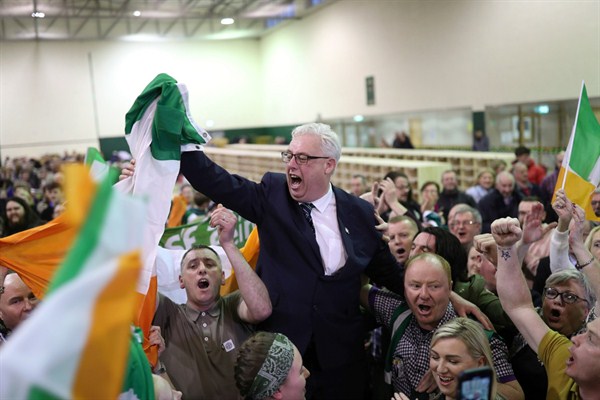Ireland’s general election earlier this month was, by all accounts, historic. For the first time, the staunchly nationalist and leftist Sinn Fein party won the popular vote, even as it failed to secure the highest number of parliamentary seats under Ireland’s complicated electoral system. Equally important was the continued decline of the two traditionally dominant parties, Fianna Fail and Prime Minister Leo Varadkar’s Fine Gael, one of which has led every government since Ireland’s independence in 1921. Now, it is conceivable that neither will be involved in the next government.
Conceivable, but still unlikely. As the party that narrowly won the most seats in parliament in the Feb. 8 election, Fianna Fail will have the greatest say in terms of who forms a government. But it and Fine Gael have both restated their longstanding opposition to a coalition with Sinn Fein due to its history as the political wing of the paramilitary Irish Republican Army. Sinn Fein, meanwhile, has engaged in talks with smaller left-leaning parties in the new hung parliament, but given the diverse number of actors involved, a stable leftist coalition is likely out of reach. Amid the stalled government formation talks, Varadkar announced his resignation this week, and party leaders have given themselves until March 5 to form a workable coalition. If they cannot do so, new elections could be held.
A Fianna Fail-Fine Gael coalition is not out of the question, but this would also represent an historic shift, as the two parties emerged from competing sides of the civil war that followed Irish independence. While the issues that provoked that conflict have long since been resolved, supporters of the two parties maintain a tribal opposition to each other. The last election in 2016 also produced results that made a coalition between the two parties likely, but Fianna Fail opted to back a Fine Gael-led minority government rather than share power with its historic rival.

